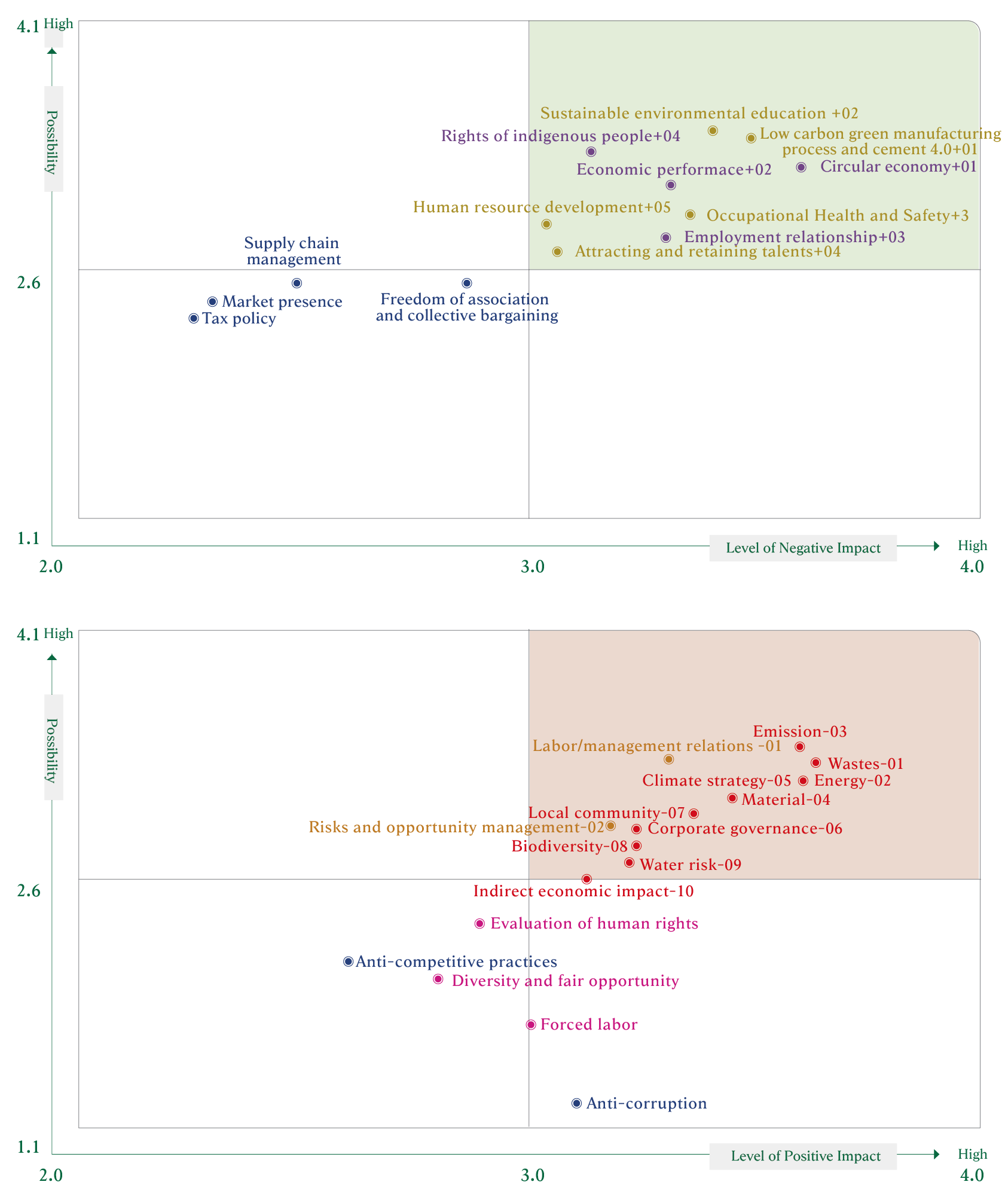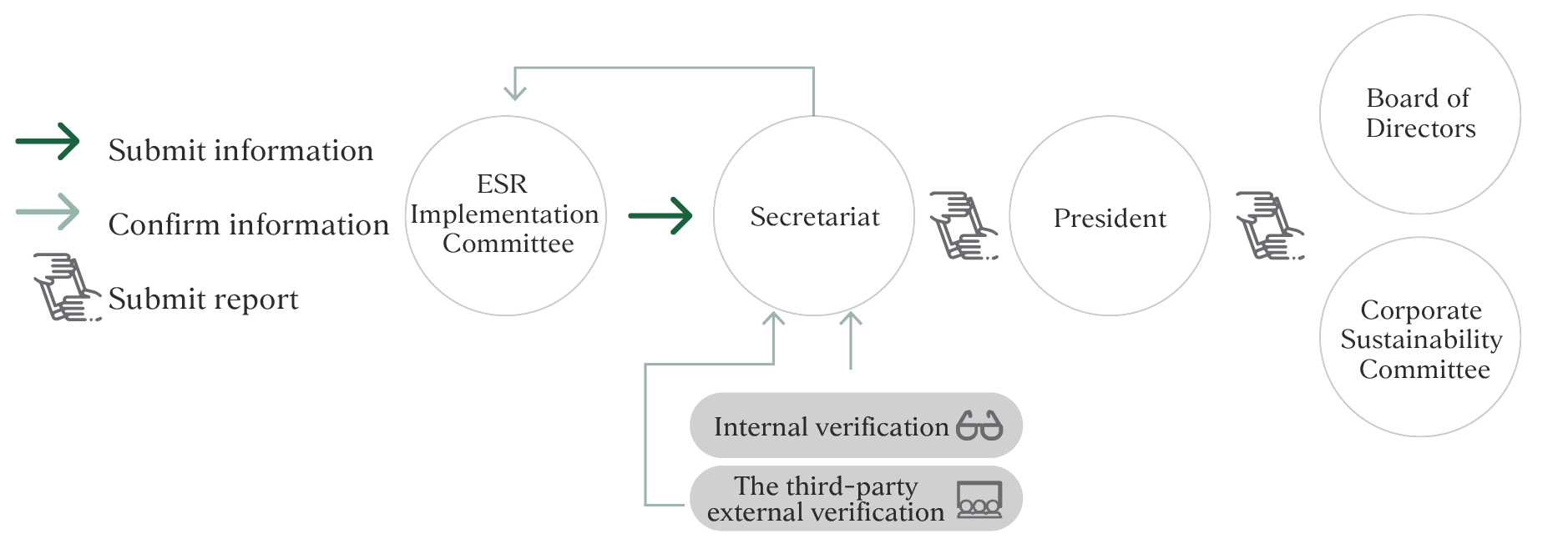Significant Issues and Stakeholders
The identification of Asia Cement Sustainable issues includes both internal and external.
| The external issues | The internal issues |
|---|---|
|
|
The Sustainable Development Charter of Global Cement and Concrete Association (GCCA) governs the five pillars and the related guidelines, implementation of which are required by the participating members, and the results shall be reported and independently audited. Sustainable issues considered significant are identified and evaluated by the Company.
Referring to the five-aspects specified in AA 1000 Stakeholder Engagement Standard (2015), Corporate Sustainability Committee evaluates stakeholders’ materiality to Asia Cement, including dependency, responsibility, tension, influence, and diverse perspectives. The top 5 categories of stakeholders are identified after the weighted evaluation: employees, investors/shareholders, customers, local communities and aboriginal people and partners.
Organizational impact identification assessment and major theme confirmation
Asia Cement identifies actual and potential impacts to economy, environment and people in the organizational activities and business relationship, including the impact to human rights. Furthermore, focusing on 30 Asia Cement related topics, Corporate Sustainability Committee implemented impact analysis and assessment, external experts evaluated the possible positive influences and negative impacts to economy, environment, and people.

Confirming And Reviewing The Completeness Of Materiality Issues
Corporate Sustainability Committee, supervised by the Board of Directors, is Asia Cement’s decision making center for promoting sustainable governance. General
Manager acts as the Chairman of Corporate Sustainability Promotion Committee who is responsible for the approval of ESG annual plans and the supervision of ESG
implementation results. He reports to Corporate Sustainability Committee and Board of Directors every six months. Corporate Sustainability Promotion Committee collected and compiled the assessment process and the results of the relevant significant issues and submitted to the committee chairman for review and approval in order to ensure that all issued were covered.

Stakeholder Integration Communication
Defining the scope of purpose and procedure in the communication between Asia Cement and stakeholders in accordance with the AA1000 SES; forming the matrix of Asia Cement integrated communication strategy; referring to the excellent communication factors in the standard and striving for a communication method with the highest strategy integration, including the involvement, collaboration and empowerment to attain the benefit from the communication.
Due Diligence
Through stakeholder communication and engagement mechanisms, Asia Cement regularly or irregularly communicate with stakeholders by using various platforms to perform due diligence on the issues of environment, society (including human rights) and corporate governance. It is expected to practically identify, prevent, mitigate, and explain the actual or potential negative impacts and positive influences for various issues. During the reporting period, the targets of due diligence were the value chains of Asia Cement and its subsidiaries.
If Asia Cement has identified situations where the impact is resulted or to be resulted, the corresponding measures will be evaluated based on the negative impact involved. Such as resolving the negative impact by way of remedy or by way of prevention or mitigation.
Asia Cement formulated the “Corporate Sustainability Policy” and committed to cover four categories including fulfilling corporate governance, developing sustainable environment, maintaining social welfare, enhancing the disclosure of corporate sustainable information.
